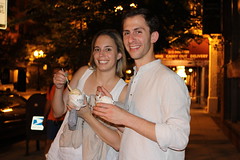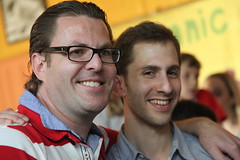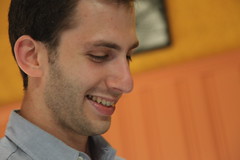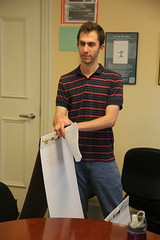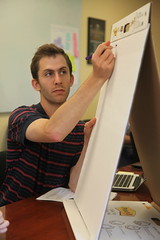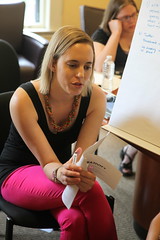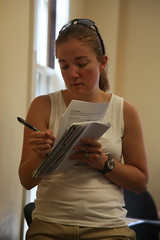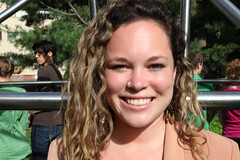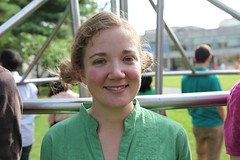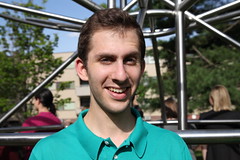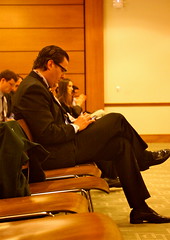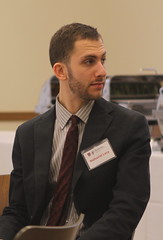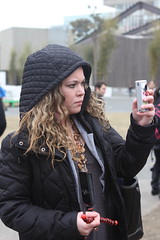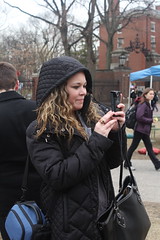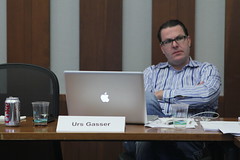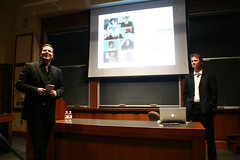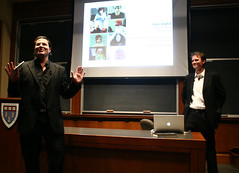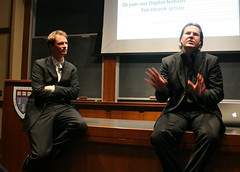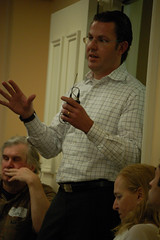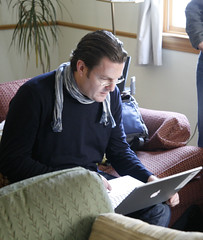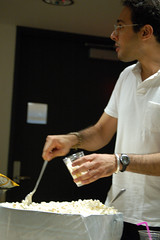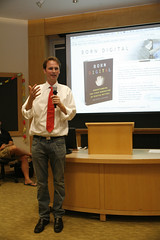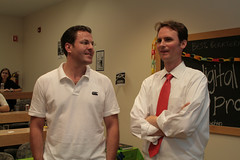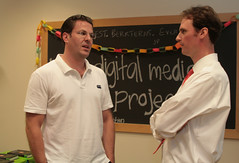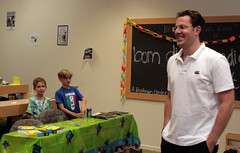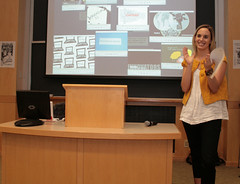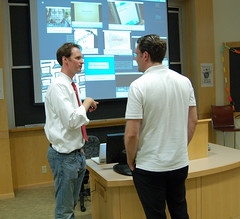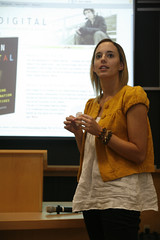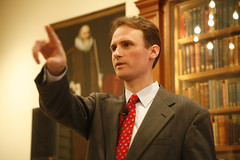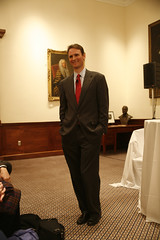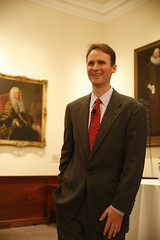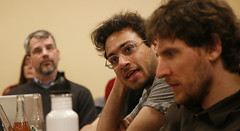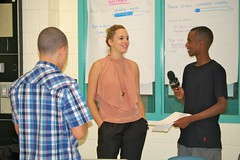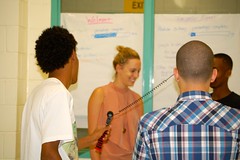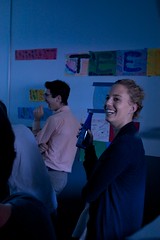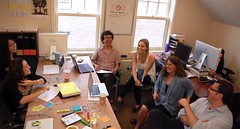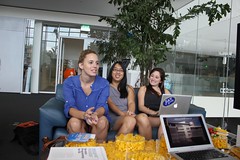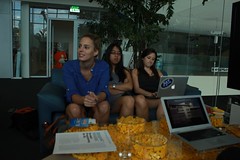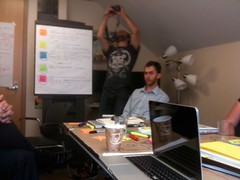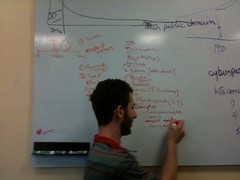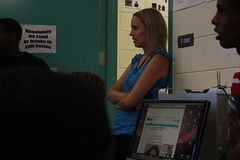Youth and Media at the Berkman Klein Center for Internet & Society
By understanding young people‘s interactions with digital media, the Youth and Media project — in collaboration with other partner institutions such as UNICEF, the Digital Asia Hub, and FIR — aims to gain detailed insights into youth practices and digital fluencies, harness the associated opportunities, address challenges, and ultimately shape the evolving regulatory and educational framework in a way that advances the public interest.
Information about past and current sources of funding is available here.
[Extended Version. Last updated: April, 2021]
Led by Principal Investigator Urs Gasser, together with Youth and Media (YaM) Director Sandra Cortesi and Alexa Hasse, supported by Berkman Klein Fellows and Faculty Associates Lionel Brossi, Andres Lombana-Bermudez, and Leah Plunkett, in cooperation with the Cyberlaw Clinic, YaM encompasses an array of research, advocacy, and development initiatives around youth (age 12-18) and digital technology. Interacting closely with other teams at the Berkman Klein Center, YaM draws on the knowledge and experiences of individuals with various backgrounds, including psychology, ethnography, sociology, education, media theory, and the law. Building upon this interdisciplinary approach, YaM invites and amplifies the voices of youth throughout the research process, aiming to develop contributions that reflect and address young people’s needs, perspectives, experiences, and interests. The team’s work builds upon an evidence-base that offers unique insights into the creative, educational, and revolutionary possibilities of youth activity in the digital space while addressing the genuine concerns that come with living life online. For additional information about Youth and Media, please visit www.youthandmedia.org. See also, www.digitallyconnected.org and www.conectadosalsur.org.
As an ambitious project, YaM embraces the core pillars of the Berkman Klein Center, which can be summarized as follows (for more information, please see http://brk.mn/yam_2017-2018overview):
Study: Over the past academic year, YaM has researched topics related to youth and digital life, with results shared in four published reports:
- ““Youth and Digital Citizenship+ (Plus): Understanding Skills for a Digital World” disentangles the contested notion of digital citizenship, mapping out over 30 different frameworks from around world, and analyzing the evolution of the concept of digital citizenship and its relationship with other skill-related terminology;
- “Youth and Artificial Intelligence (AI): Where We Stand” takes a closer look at AI-based technologies and their impact on young people’s lives in domains such as education, health and well-being, entertainment, and the future of work;
- “Youth and the Digital Economy: Exploring Youth Practices, Motivations, Skills, Pathways, and Value Creation” — a shared project between the Berkman Klein Center and the Nordic Centre, led by Berkman Klein Faculty Associate Christian Fieseler — analyzes how youth exercise their agency and participate in economic activities online, discusses power dynamics and youth positionality in online platforms, and includes three case studies on aspirational labor, virtual collaboration, and capital-enhancing activities; and
- “Youth and Cyberbullying: Another Look,” which presents an aggregation and summary of recent, primarily academic literature on youth and cyberbullying and serves as an addendum to “Bullying in a Networked Era: A Literature Review.”
In addition to these four reports, the YaM team has intensified its efforts to explore the intersection of youth, digital technologies, and well-being through a suite of efforts. Additionally, expanding the team’s previous work in Latin America, two YaM members participated in a book project — in close collaboration with several other institutions — “Youth, Digital transformation and new forms of inclusion in Latin America” (Jóvenes, transformación digital y formas de inclusión en América Latina), as editors of sections on Privacy and the Digital Economy.
Educate: The YaM team continued to work on the design of open access learning resources and expanded its repertoire to include both group and individual activities. In collaboration with BKC affiliates (Susan Benesch), fellows (Sunoo Park and Jenn Halen), and the First Draft team at Harvard Kennedy School’s Shorenstein Center on Media, Politics and Public Policy, the team has been developing new learning experiences and playlists on information verification, cryptography, counterspeech, and artificial intelligence. Additionally, YaM transformed 24 of their existing learning experiences about privacy, advocacy, and online presence into group activities, and adapted older learning experiences implemented in the United States for a more global audience.
Build: The YaM team expanded the scope and reach of the Digital Citizenship+ Resource Platform (DCRP) by adding new resources and thematic areas. Additionally, the team continued to support RErights.org — a child-centered initiative led by Amanda Third at Western Sydney University in partnership with Digitally Connected and UNICEF’s Voices of Youth that enables adolescents (ages 10 to 19) to discuss and share their ideas and experiences regarding the digital age. Insights on young people’s access to and use of digital technologies were collected using a process designed by the RErights.org team and UNICEF and later included in UNICEF’s The State of the World’s Children and its companion report.
Connect: In close collaboration with the Conectados al Sur network, the YaM team co-hosted Conectados al Sur: Costa Rica in January 2018, which centered on digital transformation issues and new challenges for the inclusion of youth. For additional information, please view (1) an overview: http://brk.mn/cascroverview (2) an agenda: http://brk.mn/cascragenda (3) pictures: http://brk.mn/cascrpictures, and (4) videos: http://brk.mn/cascrvideos. Additional network building efforts include The “Global Symposium on AI and Inclusion” in Rio de Janeiro, Brazil (see the talk on AI and Youth) and the “Inclusion in Action” workshop in Bogotá, Colombia. Moreover, team members participated in national and international conferences such as Digital Media and Learning (Irvine, California), the Scratch conference (Cambridge, MA), the Connected Learning summit (Cambridge, MA, USA), UNICEF’s Empowering Children in a Digital Age symposium (Washington, D.C., USA)., Ceibal Winter School’s Rethinking Education in the Age of Digital Technology (Punta del Este, Uruguay), the Swiss Media Forum (Lucerne, Switzerland), the Red Cross meeting (Aarau, Switzerland), RightsCon (Toronto, Canada), and the Internet Governance Forum (Geneva, Switzerland).
Some selected press coverage from this year includes: [2019] Wired, Urs Gasser about why AI Innovators Should Be Listening to Kids and why input from the next generation is crucial when it comes to navigating the challenges of new technologies, [2018] Migros-Magazin, “Sandra Cortesi über das Potenzial der Digitalen Welt,” [2017] O Globo, “We still need to better understand how to create and use artificial intelligence systems, says researcher,” and [2017] La Nación, “Cómo mejorar la relación que padres e hijos tienen alrededor de la tecnología.” More media mentions available here.



